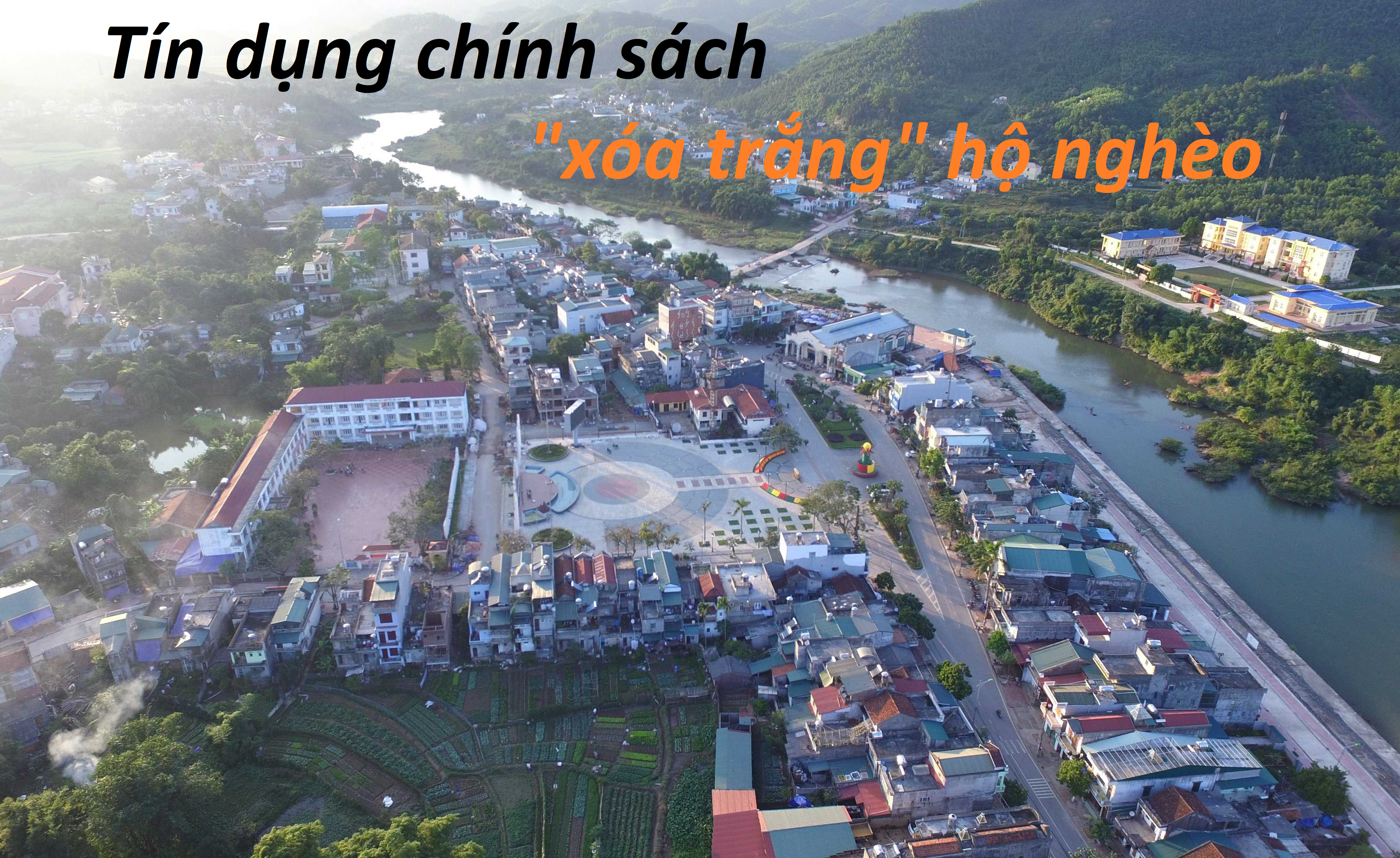
Waving his hand around the map of Ba Che District hanging in the middle of his office, Mr. Nguyen Thanh Trung, Chairman of the People's Committee of Don Dac Commune, Ba Che District, Quang Ninh Province, proudly said that as of this year, all 14 villages of the commune no longer have poor households according to the criteria of the Central Government. "Thanks to the forestation loan policy of the Social Policy Bank of Ba Che District, Don Dac Commune has completely escaped poverty," he explained.
Being a mountainous area with a large land area and a sparse population, about 10 years ago, the poverty rate of this commune with a majority of Dao ethnic people was up to 77%. However, nearly 126 billion VND in policy credit was poured into 11,000 hectares of planted forest, and the poverty that had plagued us for many years has now been eliminated. "If there were no policy capital, and no model of planting acacia, cinnamon, and yellow camellia trees, our people's lives would be much more difficult," Mr. Trung admitted.
Mr. Nguyen Thanh Trung (left), Chairman of the People's Committee of Don Dac Commune, Ba Che District, Quang Ninh Province, proudly said that as of this year, all 14 villages of the commune no longer have poor households according to the Central criteria.
Every household borrows capital to plant forests.
Standing in front of a spacious 2-storey house built last year for more than 1 billion VND, Mr. Trieu Quy Bao, Head of Pac Cay village, Don Dac commune, confidently said that the 87 households in the village now only aim to get rich, no longer worrying about "sustainable poverty" like before.
More than a decade ago, most people in Pac Cay village mainly brewed wine to use the residue to feed pigs, "stopped working, had no meals". Having access to policy credit early, Mr. Bao switched to growing acacia and yellow camellia. "Acacia trees help build houses, yellow camellia will be used to buy cars", Mr. Bao happily said when many yellow camellia trees in the backyard began to bud.
Owning 19 hectares of acacia forest, the leader of the Na Bac village folk dance group, Don Dac commune, Mr. Chiu Hong Phuc has also purchased a modern loudspeaker system for the group's entertainment. From a policy credit loan of only 30 million VND in 2007, he has now boldly borrowed 200 million VND in outstanding loans to develop production, his family has gone from "sustainably poor" to a prosperous life.
“Here, we have a very special way of growing forests. Everyone is both the owner of the forest and the employee of each other. When our family’s forest is planted, we help other families, and then they help us. Thanks to the spirit of mutual assistance, growing forests not only brings high income, about 500,000 VND/person/day, but also contributes to strengthening the village relationship, creating a cohesive community,” said Mr. Phuc.
"That is the reason why people have escaped poverty sustainably," said commune Chairman Nguyen Thanh Trung. In the area, there are still many migrant workers from other places coming to work for hire because the income is good and there is a lot of work, the locals "cannot finish the work".
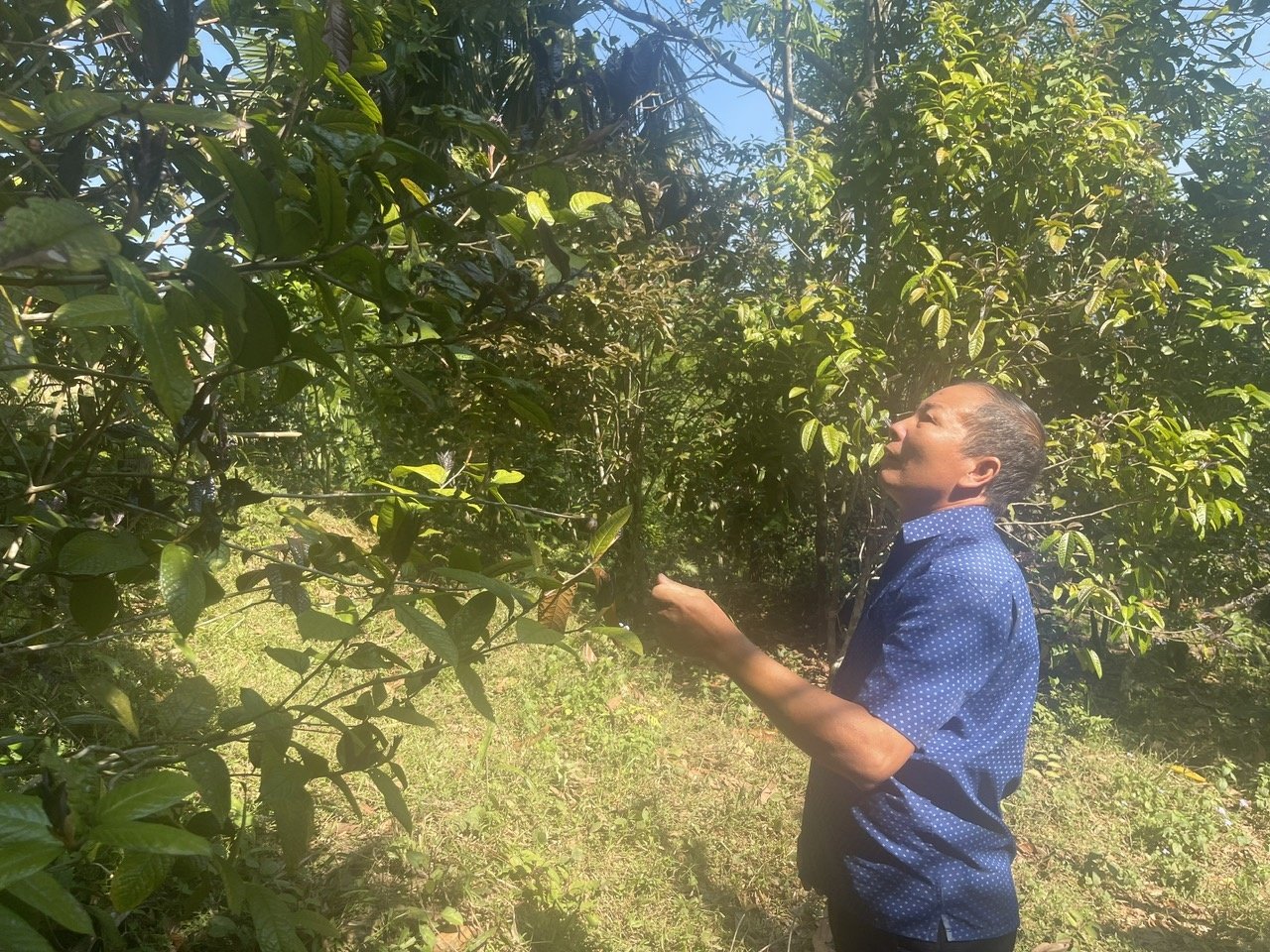
With a model of poverty eradication and enrichment, every household in Don Dac borrows policy credit capital. Mr. Trieu Quy Bao said that all 87 households in the village borrowed capital from the Social Policy Bank, and now their lives are much better than before.
“If the Social Policy Bank had not provided loans, our family would certainly still be among the poorest households in the village,” said Mr. Dang Doan Long, Lang Cong village, Don Dac commune, noting that the 100 million VND loan had given him the opportunity to develop forestry, bringing his family’s life to a new level.
The lives of people in Na Bap village, Don Dac commune, Ba Che district are now closely linked to the forest. Having a good understanding of the mountainous area of Don Dac commune, Mr. Trieu A Loc, Vice Chairman of the Commune People's Committee, said that with an average loan of 100-200 million VND/household, people can plant about 6 hectares of acacia. After only 5 years of exploitation, each household can earn 800 million VND, escaping poverty sustainably. "People now borrow capital to build forests and will pay off their debt to the Social Policy Bank in just one or two years," Mr. Loc added.
Preferential credit policies are popularized to every household.
The whole system "gets into action"
To make policy capital effective, "eliminating poverty without cutting off capital", the entire political system in each locality is involved. The policy starts from the Party Committee, the government closely follows, mass organizations stay close to the people, the Social Policy Bank regularly visits each borrower. The capital just becomes a forest, creating livelihoods.
“Every day when the interest is collected, 100% of the borrowers pay in full. Because the documents are strictly processed and follow the procedures from the loan group, almost 100% of the loan applications sent to the district are approved,” said Mr. Le Hong Phu, Director of the Social Policy Bank of Ba Che district, adding: “As a mountainous district with a large ethnic minority population, Ba Che always aims to ensure that policy credit capital reaches the people as quickly and effectively as possible. We are very happy to receive the encouragement, participation and attention of local Party committees and authorities and receive many positive responses from people about the practicality and usefulness of these policy credit programs.”
And because we always follow up closely with the borrowers, in an area of over 600 square kilometers with 8 communes and towns, the whole Ba Che district has almost no bad debt arising related to policy credit capital. "We know very well the situation of each household, when it is time to repay the debt, we notify early and go to mobilize each household", said Mr. Trieu Quy Bao, Head of Pac Cay village, also Head of the Savings and Loan Group.
Just like that, thanks to the close coordination between banks, local authorities and mass organizations, borrowing capital takes place quickly and effectively. According to the report of Ba Che District Party Committee at the Conference summarizing 10 years of Directive 40-CT/TW in 2014 of the Secretariat of the 11th Party Central Committee on strengthening the Party's leadership over social policy credit in Quang Ninh (July 2024), social policy credit implemented through the Social Policy Bank is a practical, multi-dimensional policy with profound humanity, an economic tool for the State to regulate socio-economic activities for vulnerable and disadvantaged groups. At the same time, social policy credit is an economic lever to stimulate the poor and other policy subjects to have conditions to develop production, improve their lives, and assert their position in society.
Thanks to close coordination between banks, local authorities and mass organizations, borrowing takes place quickly and effectively.
“The implementation of Directive No. 40 and Conclusion No. 06 of the Central Secretariat on strengthening the Party's leadership over policy credit has contributed to changing the face of Ba Che district, the lives of the people of all ethnic groups in the district have been increasingly improved and raised, and at the same time has been an important driving force in the successful implementation of the national target program on new rural construction and the sustainable poverty reduction program in recent times,” the Report stated.
In particular, after poverty alleviation, the province, district and commune are now considering sustainable development. Mr. Nguyen Thanh Trung, Chairman of the People's Committee of Don Dac commune, said that acacia trees grow quickly but damage the soil. The province and district are considering developing large timber trees, including cinnamon. With a growth cycle of only 3-5 years, people can harvest branches and leaves to sell as raw materials for making cinnamon essential oil... after about 10 years of harvesting, the total economic value is 3-4 times higher than growing acacia at current prices.
Quang Ninh province is planning to invest in building a cinnamon oil factory in Ba Che to encourage forest growers to switch crops. The leaders of Don Dac commune are studying the sale of carbon credits so that people can have more income when developing perennial forests.
With the current outstanding debt of about 406 billion VND with more than 4,100 borrowing households, accounting for over 70% of households in the whole district, Director of the Social Policy Bank of Ba Che district, Mr. Le Hong Phu, confidently said: "We will follow the people closely, using policy credit capital as seed capital for this new transformation."
Struggling to get close to the people
Working at the Social Policy Bank of Ba Che district, Quang Ninh province since the beginning, 21 years ago, Director Le Hong Phu has many memories of "staying in the village". "In the past, I was full of scars from business trips", he recalls.
Ba Che with 8 administrative units at commune and town level, when the Social Policy Bank established its headquarters, the roads were extremely difficult to travel to, it took half a day to reach the farthest commune by motorbike. Meanwhile, to disseminate policies to each locality, capital to each household, credit officers had to be close to the people and persistently persuade.
“Climbing passes, wading streams, and crossing large rocks, my Win kept bouncing back and forth. When I got home, my hands were red from the sun and the forks were running out of oil, which was normal,” said Mr. Phu, adding a memory of falling off the bike and not being able to breathe, thinking I would die in the middle of “the middle of nowhere.” “Back then, I was very passionate about work,” concluded Mr. Phuc.
In the Savings and Loan Groups, the area seemed close but it was not easy to mobilize people during those years. As the Head of the Savings and Loan Group of Pap Cay village since 2003, Mr. Trieu Quy Bao shared that mobilizing people to participate in the program at first was extremely difficult. "Most of the people were still hesitant and did not believe in the effectiveness of borrowing money to invest in afforestation, while the poverty rate in the village was very high, up to 47 households," said Mr. Bao.
Traffic and travel conditions in Ba Che district were very difficult in the past, but this did not prevent the flow of policy credit capital to ethnic minorities.
Chairman of the People's Committee of Don Dac Commune, Ba Che District, Mr. Nguyen Thanh Trung also admitted that in previous years, bringing policy credit capital to the people was not easy. "People were wondering what to use the capital for, what to do if they risk losing the capital," he said.
On the other hand, the views of the previous authorities were also somewhat unfavorable, not providing as much local capital as they did later. “Many opinions said that credit for policy making is giving away, and giving out is losing,” Ms. Vu Thi Ngoc Bich, Director of the Quang Ninh Province Social Policy Bank Branch, recalled.
Building a livelihood model from afforestation, policy credit capital is always ready, following each household to support, the process of persuading people to borrow capital day by day has brought about encouraging results. From an average loan of 100 million VND/household, people have invested in afforestation, effectively using the loan capital, thanks to which the average income of households has increased significantly, people's lives have improved significantly.
“The pace of poverty reduction is evident. Many changes have occurred since Directive 40 was issued and put into practice,” said Director Le Hong Phu. “The entire Pap Cay village has now become a model for overcoming poverty,” added Mr. Trieu Quy Bao.
Mr. Trieu Quy Bao, Head of Pac Cay village, Don Dac commune, in front of his newly built house.
Multiply efficiency, build reputation
According to Mr. Bao, to preserve policy credit capital, the Savings and Loan Group plays a central role in managing and monitoring the use of loans, especially in the production and business sectors. To demonstrate responsibility, raise awareness, have a source of savings to repay debts when due and ensure the sustainability of the group, it is stipulated that all members voluntarily contribute monthly savings with a minimum of 100,000 VND or more.
To ensure the sustainability of the fund, the group has stipulated that members must contribute a monthly mandatory savings of 100,000 VND, up to a maximum of 2 million VND, and commit to paying interest in full and on time. Thanks to this, not only does it create a reserve fund, but people also have the opportunity to access a stable source of capital to develop their family economy.
Dao ethnic people come to transact with the Social Policy Bank of Ba Che district
According to Mr. Le Hong Phu, thanks to preferential credit policies, up to now, more than 70% of the total 5,700 households in the district have accessed capital, mainly for developing afforestation. Thanks to that, the poverty reduction situation has made significant progress, from more than 30% of poor and near-poor households before 2015, to now the whole district has no households falling into this situation. This proves that people have used loans effectively and responsibly, demonstrated by the absence of bad debt or overdue debt.
“The close coordination between the government, organizations and the community has contributed significantly to reducing bad debt. Thanks to the close attention of the government at all levels, along with the spirit of mutual assistance of the people, difficulties in the debt repayment process have been effectively resolved. Organizing transaction points in the commune on a regular monthly day and regular visits by officials to the area have helped increase people's trust, creating favorable conditions for lending and debt collection,” Mr. Le Hong Phu shared.
Through many surveys and summaries, people have expressed their high appreciation for the effectiveness of credit policies in improving their lives. At the summary meeting of 20 years of implementing Decree No. 78/2002/ND-CP of the Government on policy credit for poor and near-poor households (2002-2022), with the participation of the Standing Committee of the District Party Committee, local people clearly affirmed the important role of this capital source in supporting them to develop the economy and improve their lives.
In fact, with continuous efforts, in just 10 years, Ba Che has achieved impressive results by reducing the number of poor households by more than 30%. The complete elimination of dilapidated and temporary houses shows the determination to build a better life for the people.
Policy credit capital has helped many Dao ethnic households to sustainably escape poverty.
According to Mr. Le Hong Phu, the disbursement process is currently carried out very quickly. For transactions at the commune level, the Bank conducts them on a fixed day of the month. Before the transaction date, the village savings and loan groups proactively review the documents and send them to the commune and the bank a few days in advance. Thanks to that, the bank has enough time to appraise and approve the documents. On the transaction date, the main task is to disburse, collect debts and handle some other tasks right at the commune-level People's Committee headquarters. The rate of approved and disbursed documents is nearly 100%, which shows that the coordination process between the bank, local authorities and loan groups has become very smooth.
Villagers are familiar with the process and the lending organizations have also mastered the criteria for public review, selection, and listing of customers for loan applications. As a result, problems arising after disbursement are rare.
Villagers are familiar with the process and lending organizations have mastered the criteria for selecting suitable customers. As a result, problems arising after disbursement are rare.
“People’s lives have improved significantly. From having to borrow money and grow crops multiple times to build houses, people have now proactively expanded production, aiming to own cars. Thanks to the province’s strong investment in remote districts, the transportation system has changed significantly. Roads have been expanded and upgraded, along with the appearance of many spacious medical stations and schools. Village infrastructure has also improved significantly,” said Mr. Le Hong Phuc.
Seeing that the capital is secured and the effectiveness in poverty reduction is clearly visible, Quang Ninh province also increases the local entrusted capital for the difficult areas. Mr. Phuc said that in the capital source of the Social Policy Bank of Ba Che district, there are 2 billion VND of capital coming from the district government, more than 135 billion VND from Quang Ninh province.
“This is a source of seed capital to help people get rich and multiply the efficiency of capital, and at the same time, it is also the reputation of the whole system when working together to help people improve economic conditions and develop sustainably,” Mr. Phu affirmed.
Social policy credit in Quang Ninh has been bringing about significant results, contributing to improving people's lives, especially poor and near-poor households.
Consensus, tighten coordination work
According to the report summarizing 10 years of implementing Directive No. 40-CT/TW dated November 22, 2014 of the Central Party Secretariat on strengthening the Party's leadership over social policy credit in Quang Ninh province, as of June 30, 2024, the total source of social policy credit capital in Quang Ninh is 5,075.5 billion VND, an increase of 3,426.7 billion VND (2.07 times increase) compared to 2014, with an average growth rate of 20.7%/year. Of which, the central capital source is 3,880.4 billion VND, accounting for 76.5% of the total capital source, an increase of 2,268 billion VND compared to 2014; Local budget capital entrusted reached 1,195.1 billion VND, accounting for 24% of total resources, an increase of 1,158.7 billion VND, 31.9 times higher than the time before Directive No. 40-CT/TW was issued (at the end of 2014 it was 36.3 billion VND).
Ms. Vu Thi Ngoc Bich, Director of the Quang Ninh Provincial Social Policy Bank Branch, said: “The successful capital mobilization is thanks to the special attention of the province. Leaders at all levels highly appreciate the effectiveness of policy credit capital in improving people's lives. Through monitoring sessions, people's opinions were recorded and provincial leaders affirmed the importance of this capital source. To continue supporting people, the province has proactively supplemented capital sources to replace central capital sources, ensuring the maintenance and expansion of policy credit.”
According to Ms. Bich, the provincial leaders participating in the Representative Board as the Head of the Board, together with the Director of the State Bank and leaders of relevant departments and branches, have made maximum efforts to ensure capital sources, strengthen management and regularly report on the operation situation. Thanks to the close coordination of the Fatherland Front, local authorities and mass organizations, the province has actively implemented many solutions to improve credit quality.
Compared to 10 years ago, the situation has improved significantly when the overdue debt ratio has decreased to 0.03% of total outstanding debt. The assessment of policy credit quality has been included in the scoring criteria of the council from commune to provincial level, creating motivation for all levels and sectors to improve operational efficiency. Thanks to the continuous efforts, Quang Ninh has built a healthy credit system, receiving special attention from the entire provincial political system.
Ms. Vu Thi Ngoc Bich, Director of the Social Policy Bank Branch in Quang Ninh province, spoke at the conference summarizing 20 years of implementing Decree 78.
Mr. Nguyen Duc Hien, Director of the State Bank of Vietnam Branch in Quang Ninh province, also acknowledged that the implementation of Directive 40 has brought about clear positive effects for the Vietnam Bank for Social Policies. Accordingly, the provincial budget capital transferred to support the bank's activities has increased significantly, contributing to more effective implementation of policies and programs, especially in the field of post-disaster support and lending to poor and near-poor households...
Mr. Hien also emphasized the difference compared to before: “Previously, the provincial budget capital was often allocated sporadically, even to localities that were not yet able to balance themselves. However, since Directive 40 was issued, the concentration of capital on the province's general programs has brought about more obvious results. Thanks to that, the capital of the Social Policy Bank has effectively supported disadvantaged groups in the province.”
The Social Policy Bank has a wide network from province to commune, with regular mobile transaction points in localities. Disbursement and debt collection are carried out according to a specific schedule, ensuring maximum access to disadvantaged subjects. The bad debt ratio is low, reflecting the bank's credit management efficiency. The system operates stably, with a bad debt ratio of less than 0.1%, showing that the lending groups operate effectively and are tightly managed.
Mr. Thai Manh Cuong - Deputy Director of the State Bank of Quang Ninh province added: "The low bad debt ratio is thanks to the effective implementation of credit policies and debt management. In particular, the active participation of mass organizations such as the Veterans Association, Farmers' Association... in debt management and collection has contributed significantly to bad debt control. Small-scale lending and community lending are also highly effective thanks to the sense of responsibility of the lending organizations. They always want to maintain the reputation of the community, so they have fulfilled their debt repayment obligations very well."
The preferential credit policies of the Vietnam Bank for Social Policies are always publicly informed to the people.
Continue to promote the effectiveness of policy credit
Recently, the Quang Ninh Provincial Party Committee announced the conclusion of the Provincial Party Committee Standing Committee on the Summary of 10 years of implementing Directive No. 40-CT/TW dated November 22, 2014 of the Secretariat of the 11th Party Central Committee on strengthening the Party's leadership over social policy credit in Quang Ninh province. The Provincial Party Committee Standing Committee assessed that after nearly 10 years of implementing Directive No. 40-CT/TW and Conclusion No. 06-KL/TW dated June 10, 2021 of the Secretariat of the Party Central Committee on continuing to implement Directive No. 40-CT/TW, social policy credit has come into life, supporting production and business establishments, households, workers, and social policy beneficiaries to borrow capital for production and business, house repair, purchase of social housing, construction of clean water and sanitation works, creating jobs, livelihoods, stabilizing and increasing income.
Social policy credit capital has been effective, contributing to the successful implementation of the goal of rapid and sustainable poverty reduction, new rural construction, promoting the development of agricultural, forestry and fishery production, effectively implementing Resolution No. 06-NQ/TU of the Provincial Party Committee, Project No. 409-QD/TU of the Provincial Party Committee Standing Committee, creating a breakthrough in increasing the average income per capita in rural and mountainous areas, ensuring social security, improving the quality of life in all aspects of the people, quickly narrowing the gap between regions, contributing to the completion of the targets and objectives of the Resolution of the 15th Provincial Party Congress, term 2020-2025.
To continue to effectively implement Directive No. 40-CT/TW, Conclusion No. 06-KL/TW, Directive No. 26-CT/TU dated June 28, 2022 of the Provincial Party Committee Standing Committee on continuing to implement Directive No. 40-CT/TW, the Provincial Party Committee Standing Committee requests party delegations, party executive committees, party committees at all levels, party organizations, authorities, the Fatherland Front and socio-political organizations to consider social policy credit as a policy that contributes significantly to implementing policies and goals on economic growth along with social progress and equity, as one of the regular and continuous tasks to implement the 5-year socio-economic development plan (2021 - 2025) and the 10-year socio-economic development strategy (2021 - 2030). Therefore, Party committees, Party organizations, authorities, the Fatherland Front and socio-political organizations must continue to enhance their roles and responsibilities in leading and directing social policy credit activities.
At the same time, it is necessary to pay attention to balancing and allocating local budget capital entrusted to the Bank for Social Policies to supplement loan capital according to Resolution No. 111/2024/QH/QH15 of the National Assembly on a number of specific mechanisms and policies to implement National Target Programs.
Source: https://thoibaonganhang.vn/tin-dung-chinh-sach-xoa-trang-ho-ngheo-159032-159032.html


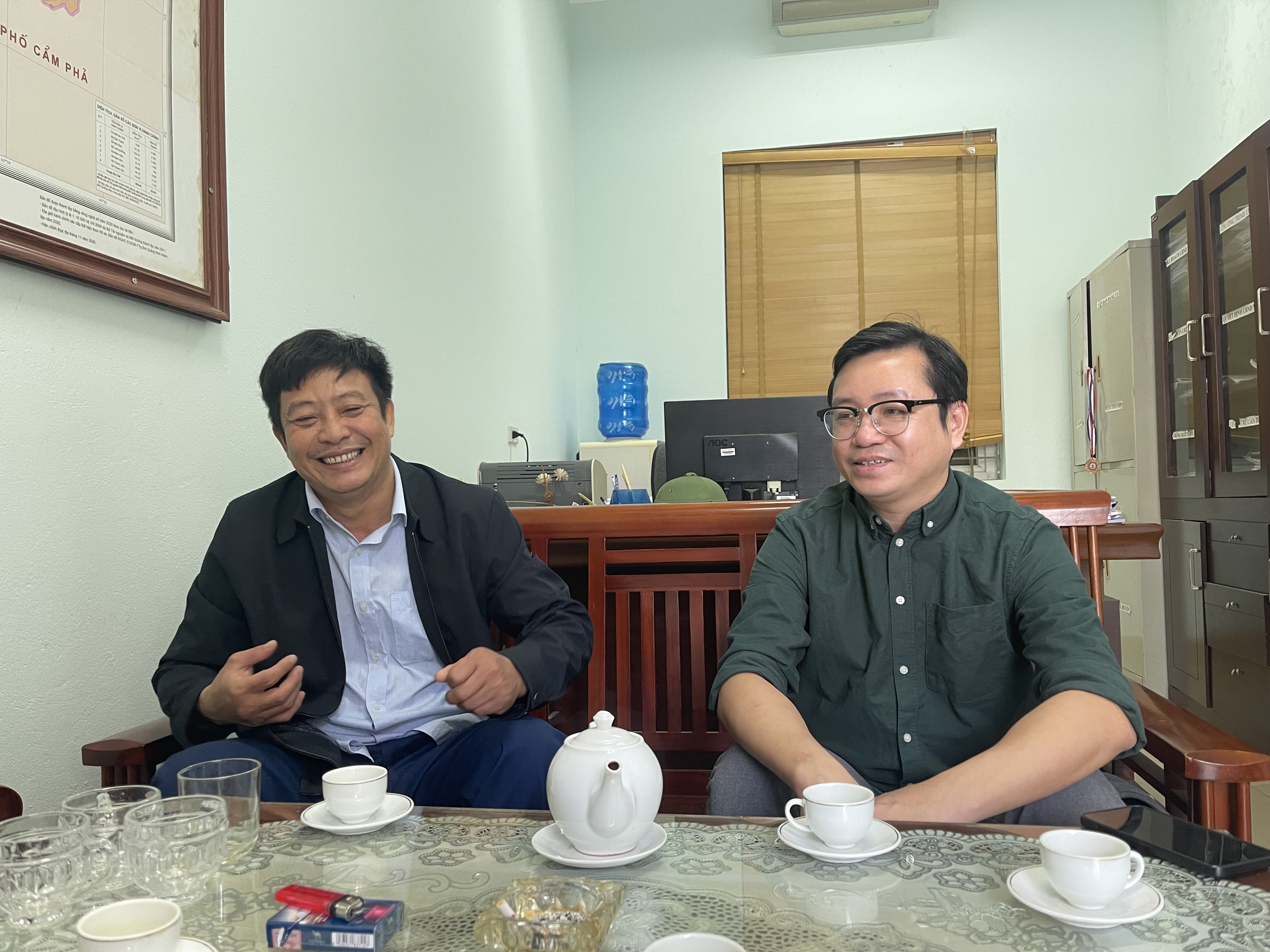
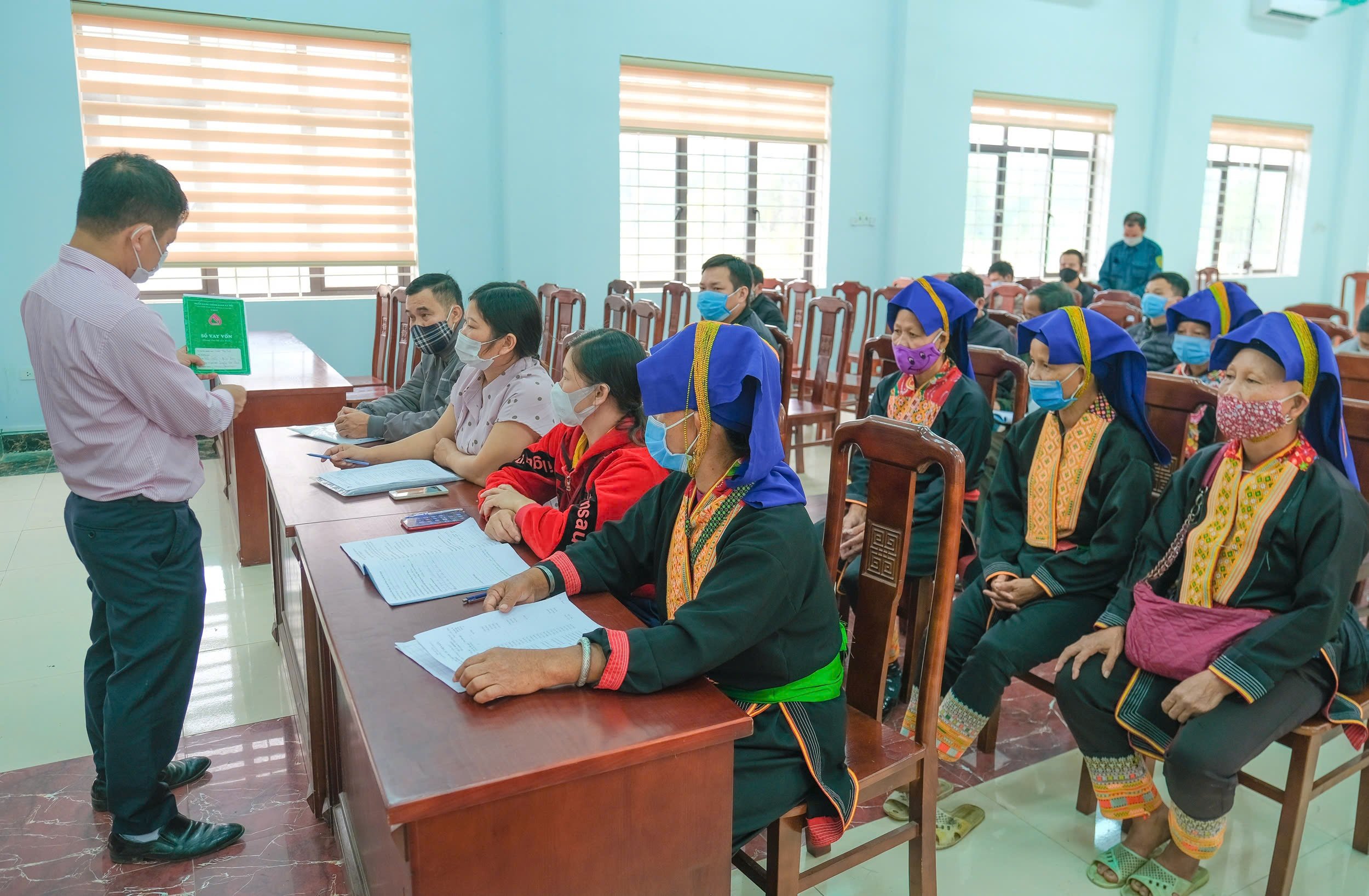
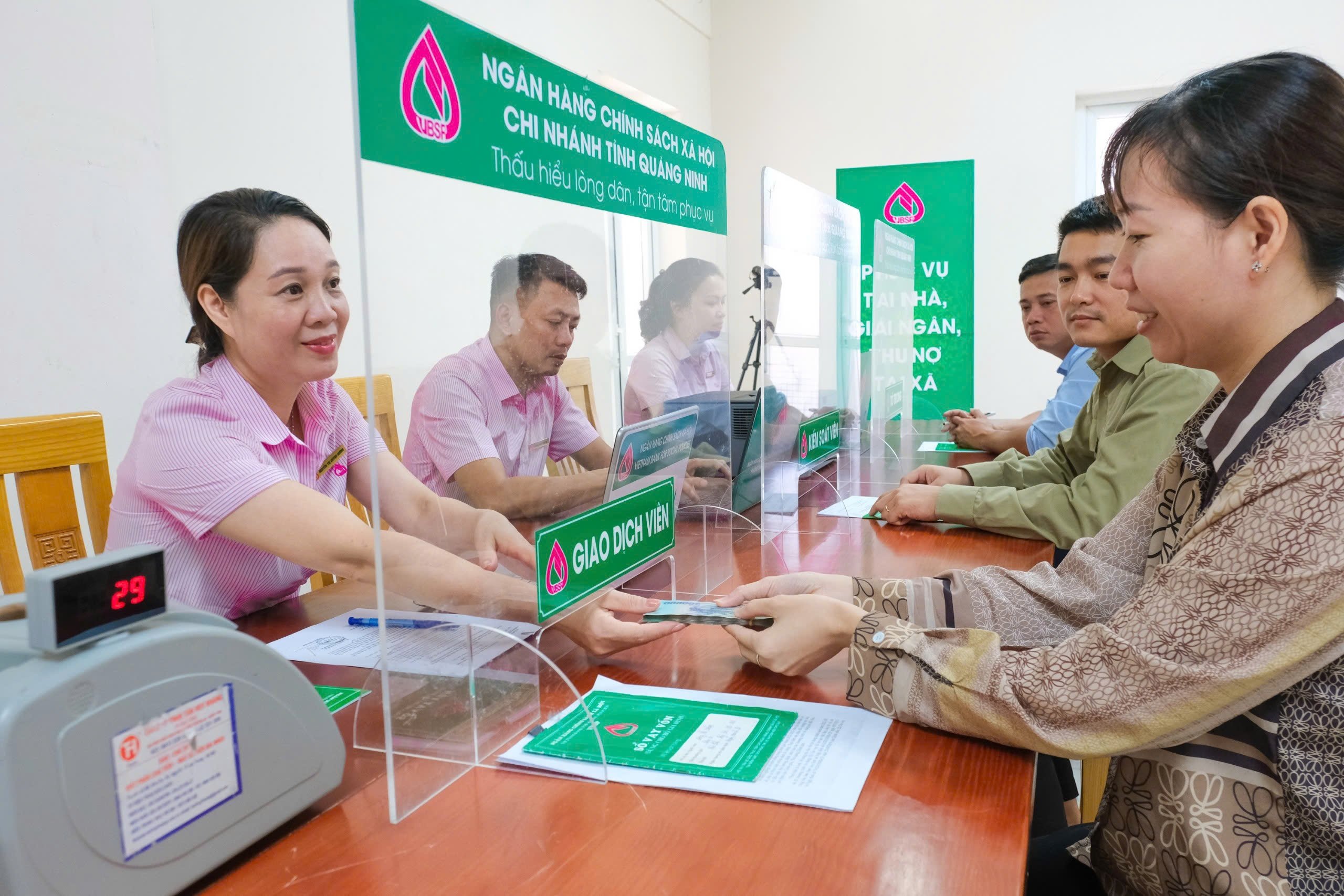
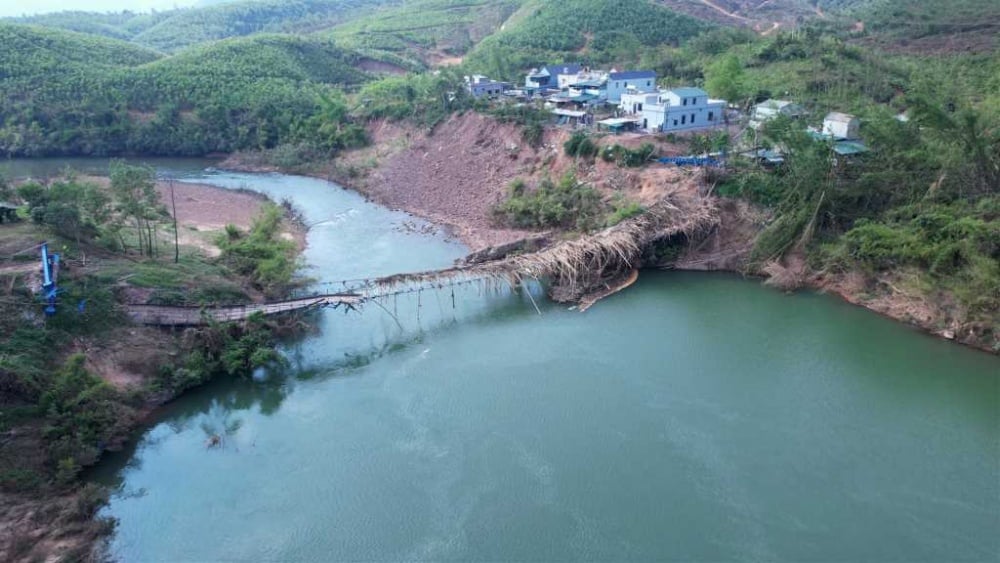
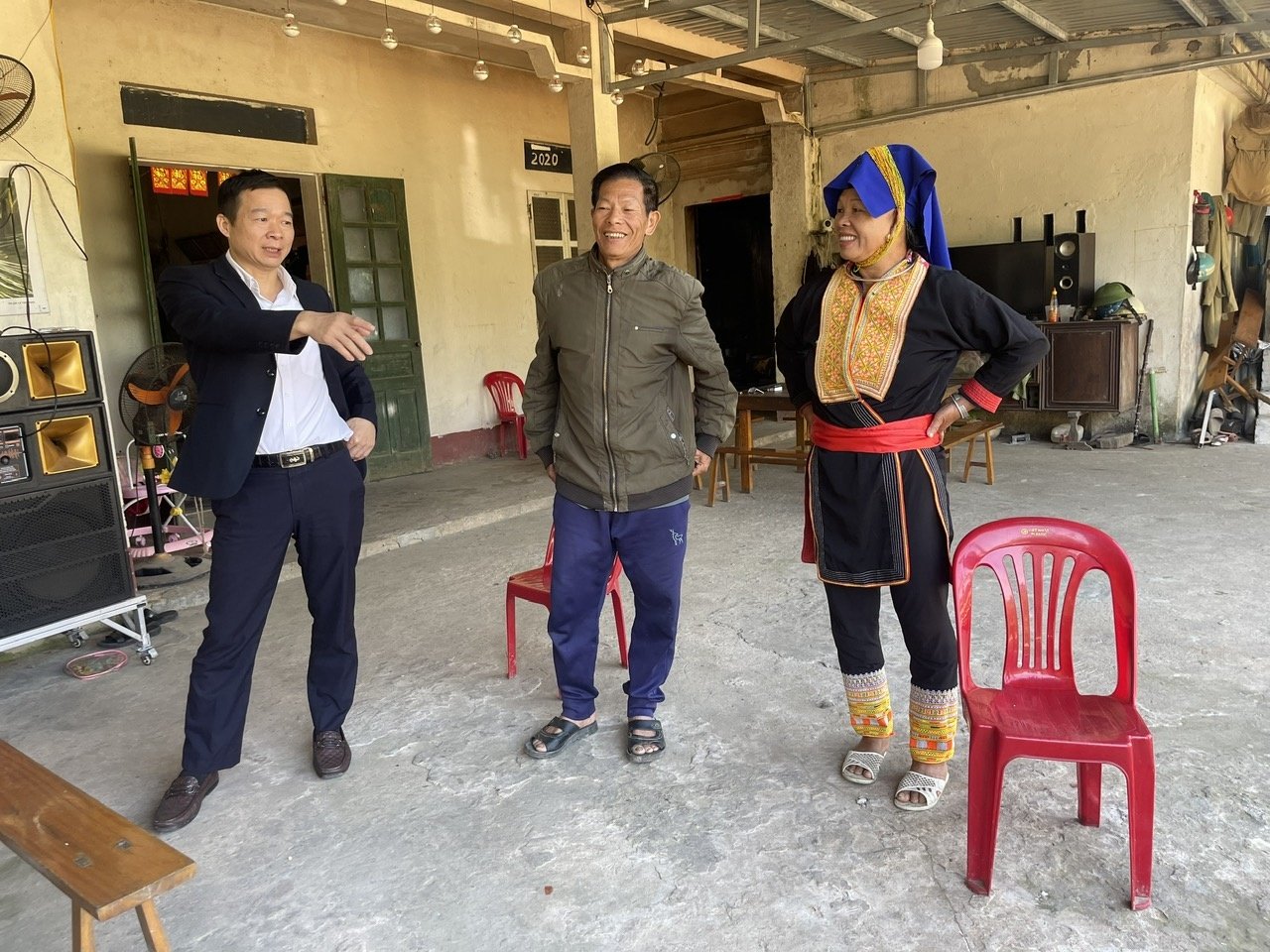
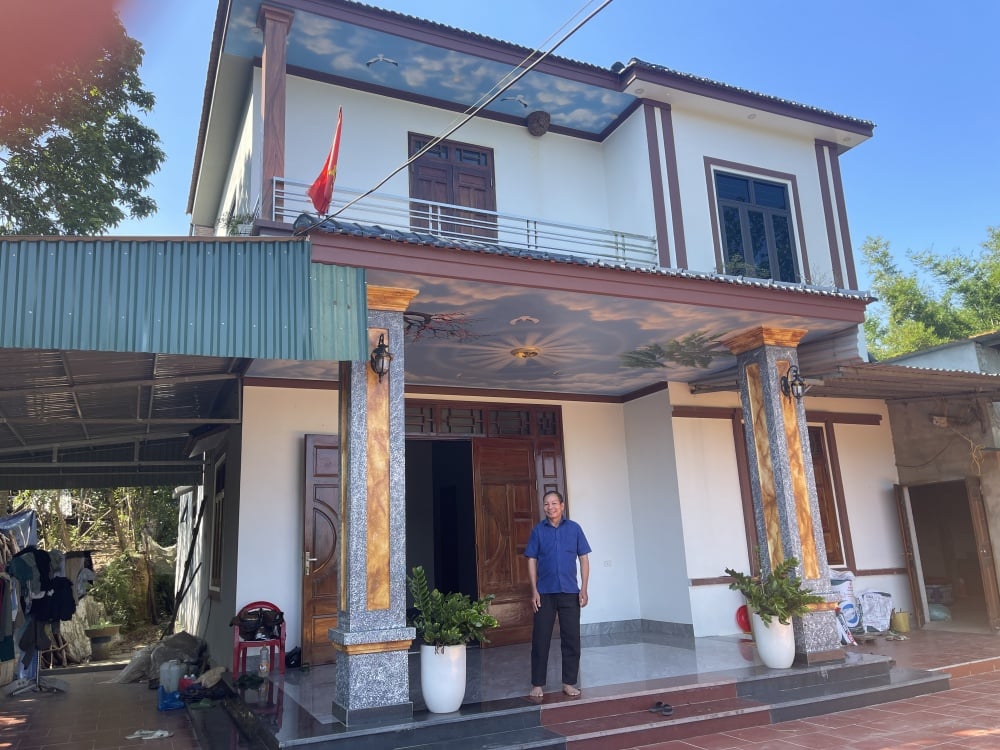
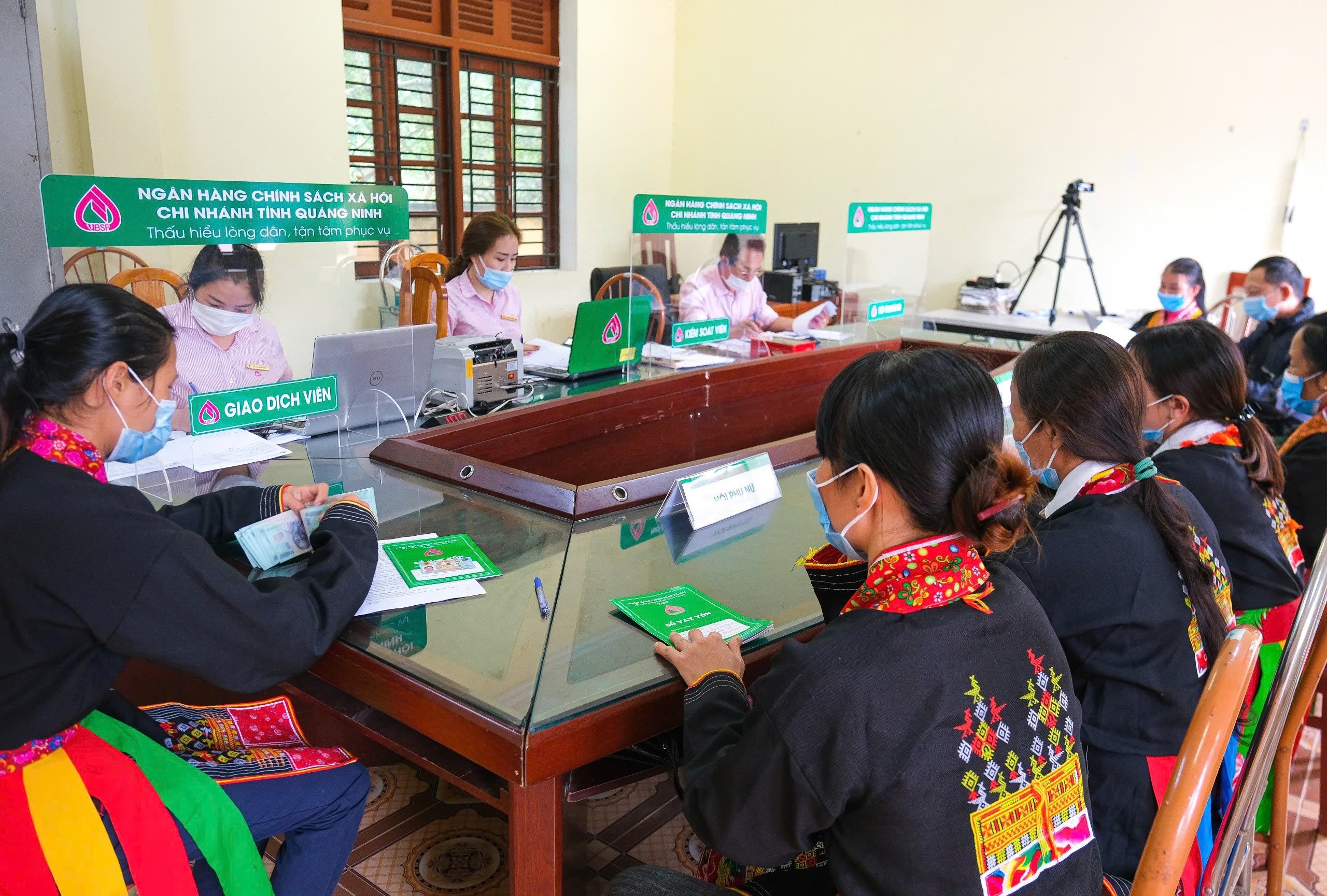
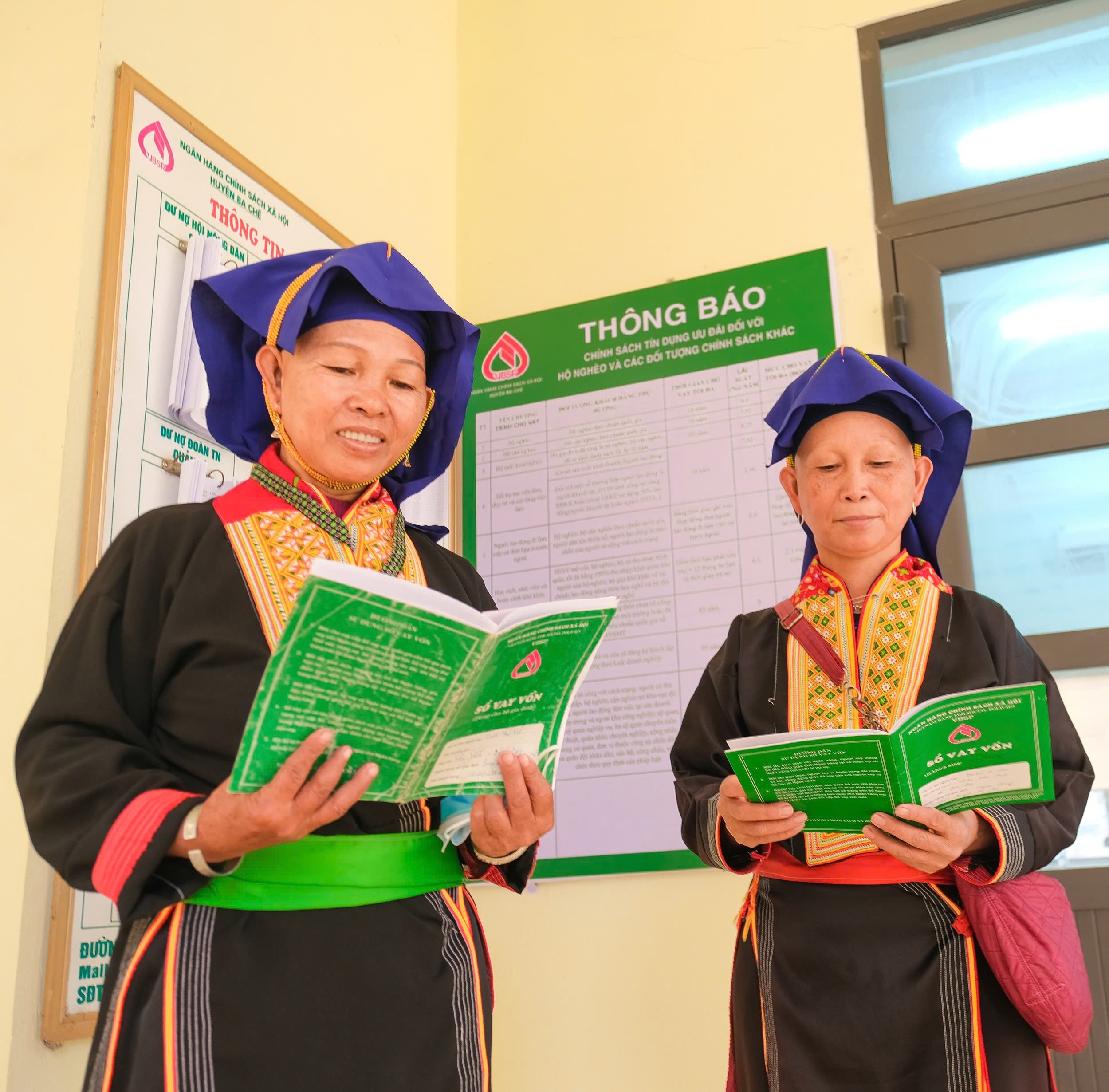
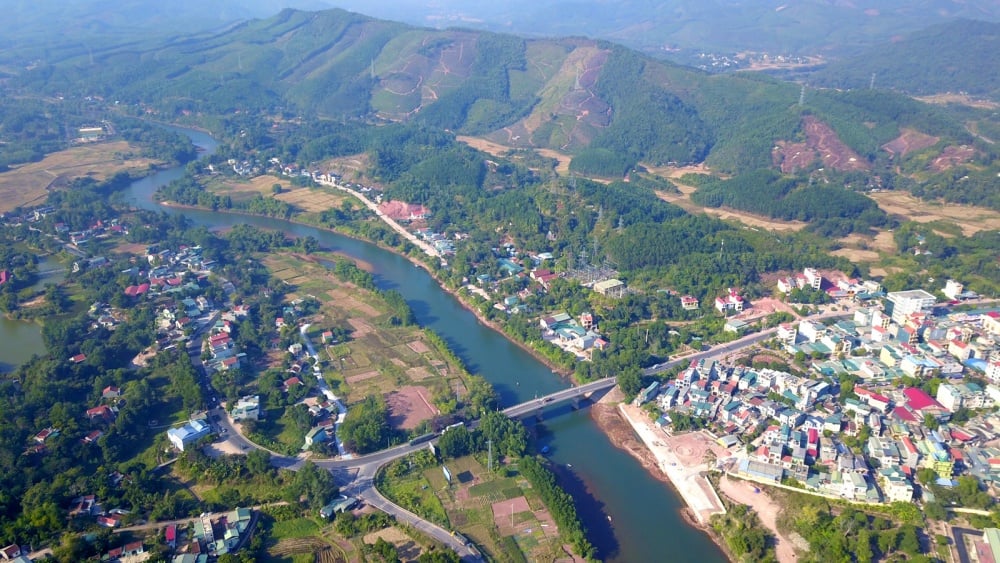
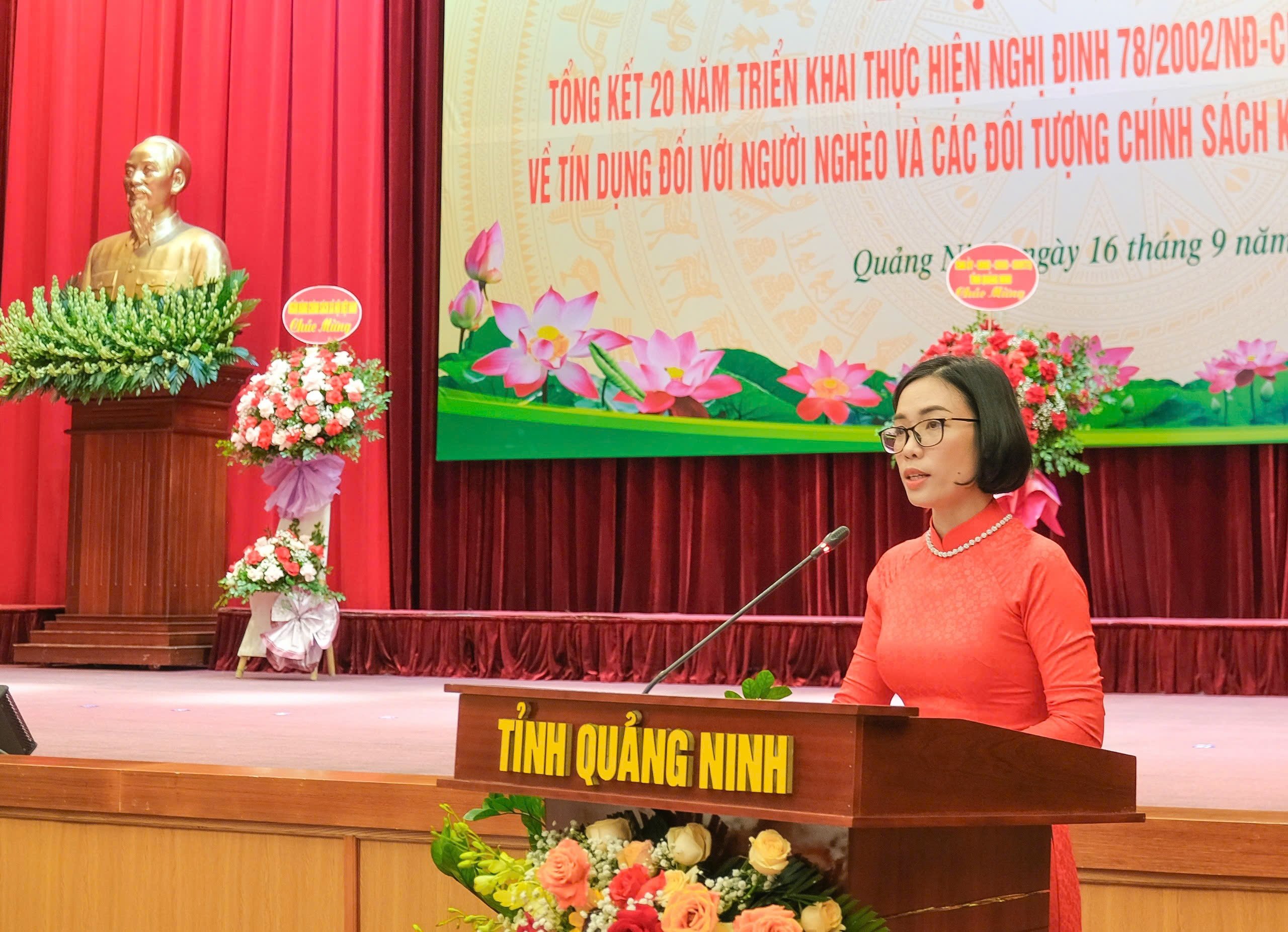
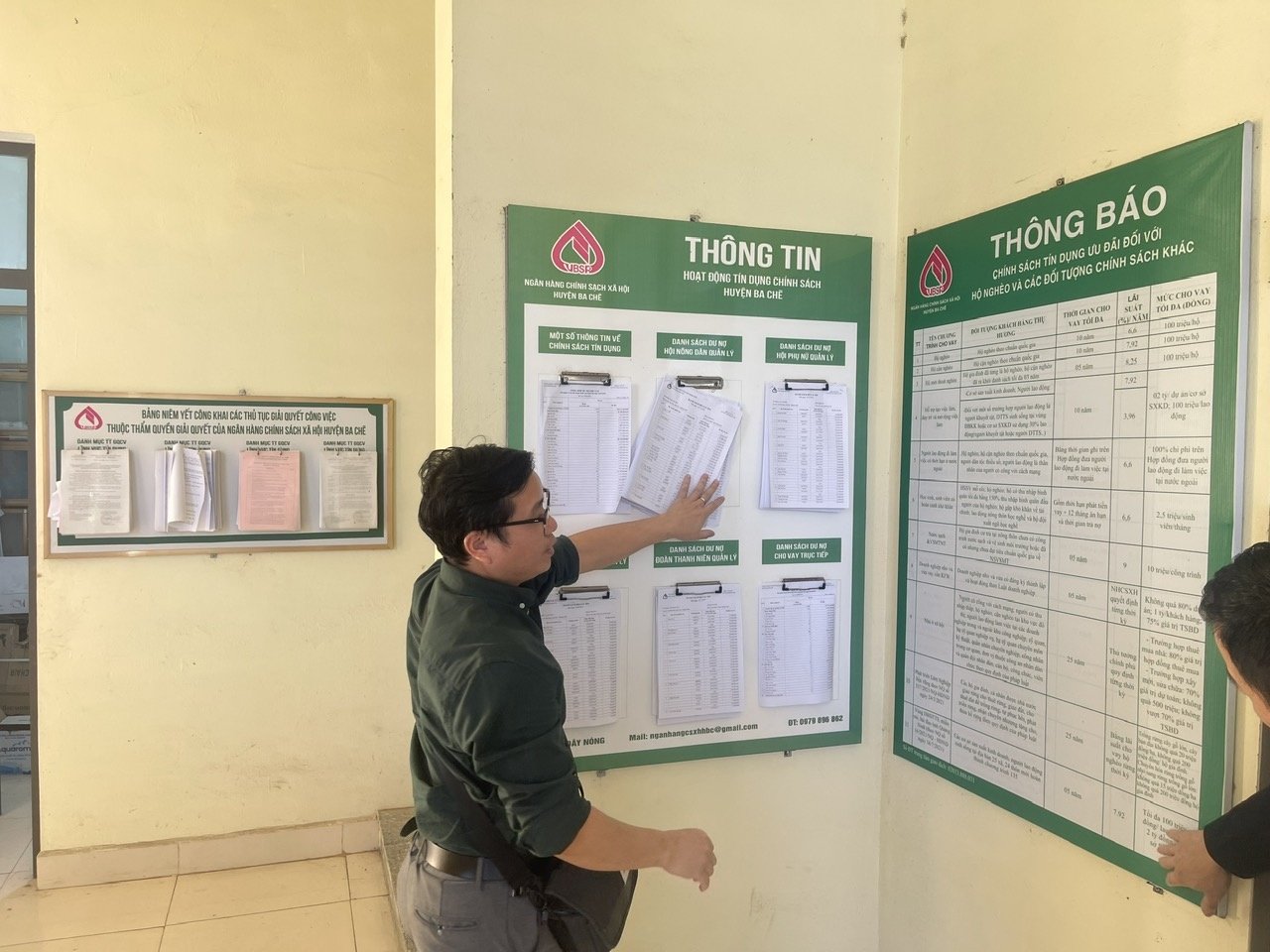




![[Photo] Prime Minister Pham Minh Chinh chairs the Government's online conference with localities](https://vphoto.vietnam.vn/thumb/1200x675/vietnam/resource/IMAGE/2025/10/5/264793cfb4404c63a701d235ff43e1bd)
![[Photo] Prime Minister Pham Minh Chinh launched a peak emulation campaign to achieve achievements in celebration of the 14th National Party Congress](https://vphoto.vietnam.vn/thumb/1200x675/vietnam/resource/IMAGE/2025/10/5/8869ec5cdbc740f58fbf2ae73f065076)


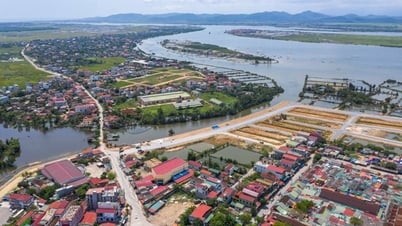

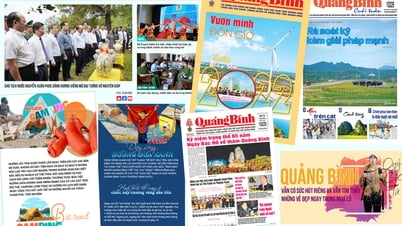

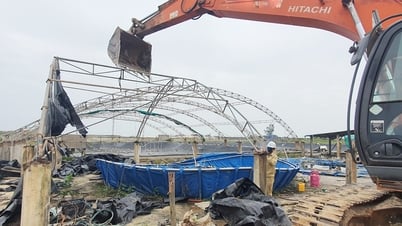
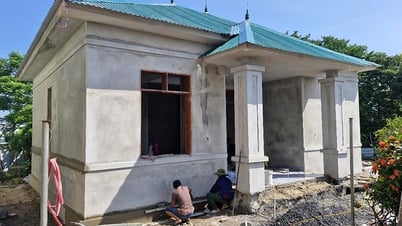




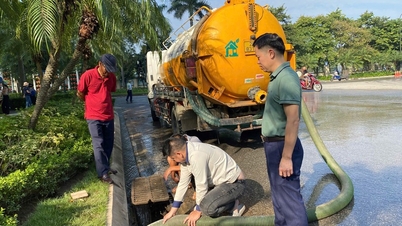
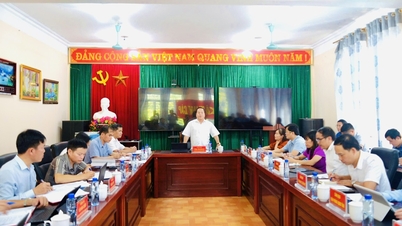


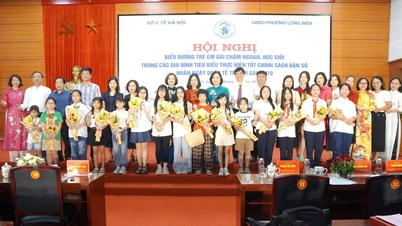
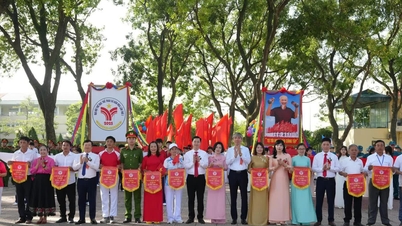


























![[VIDEO] Summary of Petrovietnam's 50th Anniversary Ceremony](https://vphoto.vietnam.vn/thumb/402x226/vietnam/resource/IMAGE/2025/10/4/abe133bdb8114793a16d4fe3e5bd0f12)

![[VIDEO] GENERAL SECRETARY TO LAM AWARDS PETROVIETNAM 8 GOLDEN WORDS: "PIONEER - EXCELLENT - SUSTAINABLE - GLOBAL"](https://vphoto.vietnam.vn/thumb/402x226/vietnam/resource/IMAGE/2025/7/23/c2fdb48863e846cfa9fb8e6ea9cf44e7)















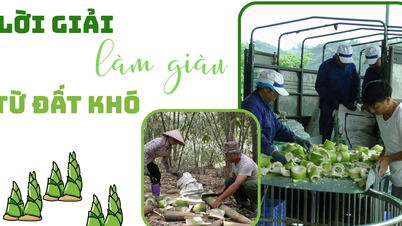




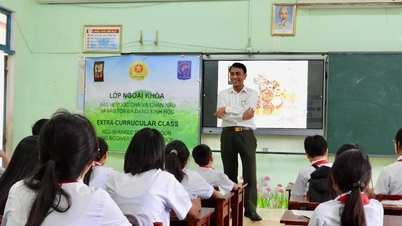














Comment (0)